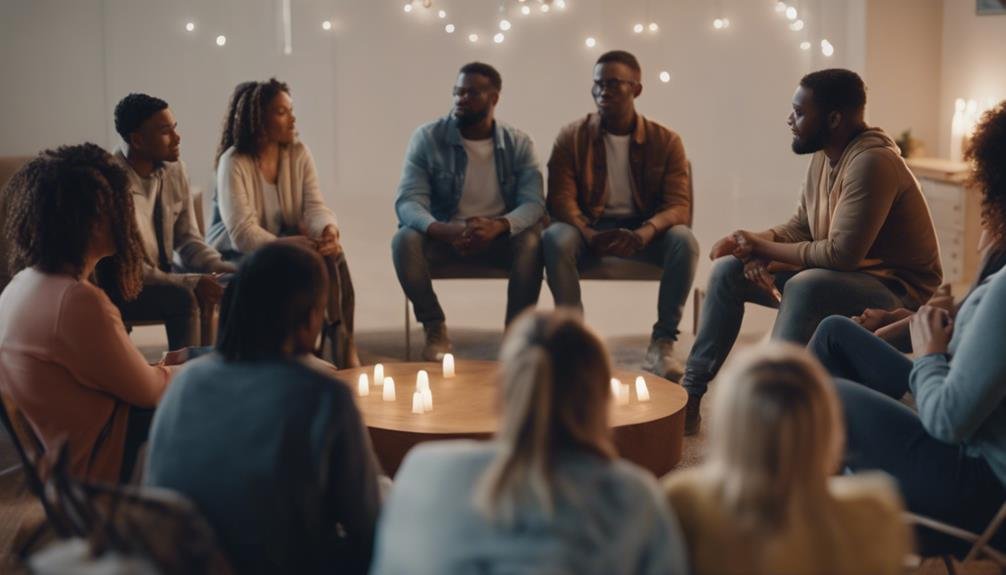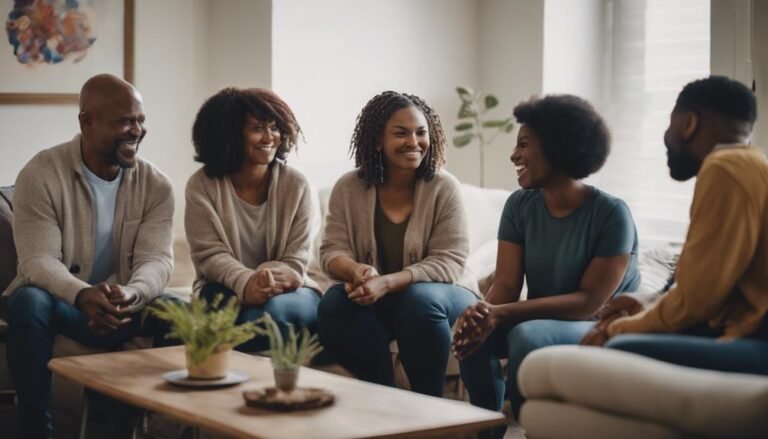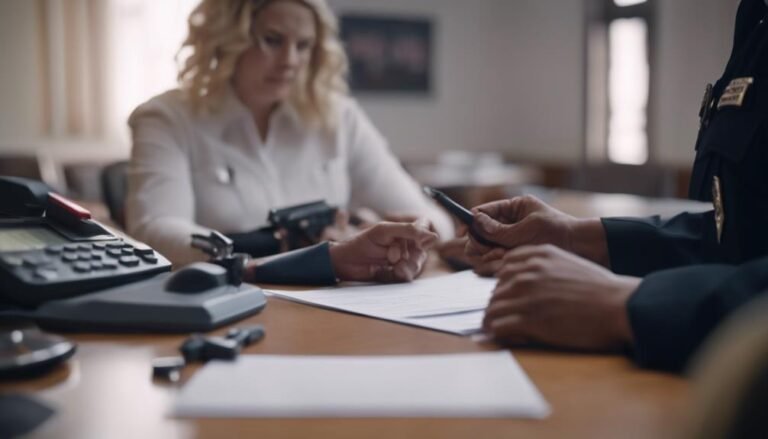Embark on an enlightening journey at the ‘Life Is Love School,’ where I unravel the complexities of abusive dynamics, coping strategies, manipulative tactics, and the essence of self-worth in finding freedom and healing. The school delves deep into understanding abusive relationship dynamics, offering insights into psychological factors, recognizing red flags, and the ramifications of staying in toxic situations. By prioritizing self-worth and seeking support, one can break free from the chains of abuse and step into a transformative path towards empowerment and well-being. Discover the transformative teachings awaiting at the heart of the ‘Life Is Love School.’
Key Takeaways
- Healing workshops for trauma processing and self-worth building.
- Inner healing tools provided in workshops for personal growth.
- Sense of community found in supportive group settings.
- Transformative journey towards healing and empowerment.
- Coping strategies offered for emotional regulation and healing.
Understanding Abusive Relationship Dynamics
Understanding the dynamics of abusive relationships reveals the intricate web that often entangles victims in a cycle of manipulation and harm. Trauma recovery is an essential journey, especially when emotional boundaries have been blurred by an abuser.
Victims may struggle to distinguish between love and control, leading to repeated returns to the toxic relationship. Setting emotional boundaries becomes vital for breaking free from the cycle of abuse.
Trauma recovery involves recognizing the signs of manipulation, understanding the impact of abuse, and seeking support to heal. By establishing firm emotional boundaries and prioritizing self-care, victims can begin the process of reclaiming their autonomy and rebuilding their sense of self-worth.
Psychological Factors and Coping Strategies
Moving through the complexities of abusive relationships often involves grappling with psychological factors that can keep victims trapped in cycles of manipulation and harm.
Self-care techniques play a crucial role in the healing process. Engaging in mindfulness practices helps victims stay present and grounded.
Emotional regulation is essential for managing the intense feelings that come with leaving an abuser.
Setting boundaries is a powerful tool in breaking free from toxic relationships. By prioritizing personal well-being and growth, victims can begin to reclaim their power and autonomy.
Recognizing the need for self-love and respect is key to moving forward. It’s important to remember that healing is a journey, and practicing self-compassion is crucial along the way.
Recognizing Manipulative Tactics and Self-Worth
When dealing with abusive relationships, it’s essential to carefully observe manipulative tactics employed by abusers and prioritize one’s self-worth above all else.
Refusing manipulation starts with recognizing red flags – the subtle signs that erode self-esteem and control. Building self-worth involves self-validation, acknowledging your intrinsic value regardless of external opinions.
Abusers often use deceit and false promises to keep victims ensnared, preying on vulnerabilities. Childhood trauma can make seeking approval from abusive partners seem familiar, perpetuating the cycle.
It’s vital to break free from this pattern, refuse to be manipulated, and nurture a healthy sense of self. By recognizing these manipulative tactics and valuing your worth, you empower yourself to step into a future free from abuse.
Consequences of Staying in Abuse
Recognizing the insidious consequences of staying in an abusive relationship reveals a stark reality that demands attention and action. Remaining in such a toxic environment can lead to profound regret and a sense of a wasted life.
The harm inflicted on children witnessing the abuse can have lasting effects on their well-being. It’s vital to reflect on the impact of staying in an abusive relationship, forgive oneself for the choices made, and break free from the cycle of abuse.
Choosing to be a survivor, not a victim, is a powerful step towards healing and deserving better in relationships. By seeking support and embracing growth opportunities, one can pave the way towards a brighter and healthier future.
Seeking Support and Healing Resources

Amidst the journey of healing from an abusive relationship, seeking support and accessing healing resources becomes a beacon of hope and empowerment.
Healing workshops offer a safe space to process trauma, learn coping strategies, and rebuild self-worth. These workshops provide tools for inner healing and empower individuals to start a transformative journey towards healing, self-discovery, and empowerment.
Support groups offer a sense of community, understanding, and validation. Connecting with others who’ve walked a similar path fosters healing through shared experiences and mutual support.
By participating in these workshops and support groups, individuals can initiate a transformative journey towards healing, self-discovery, and empowerment.
It’s through these resources that the path to healing becomes illuminated, guiding survivors towards a brighter future filled with love and self-compassion.
Frequently Asked Questions
How Can I Break Free From the Cycle of Abuse and Move On?
Breaking free from abuse involves recognizing manipulation, prioritizing self-worth, and seeking support. Acknowledge the cycle, focus on healing, and embrace self-care. By understanding the dynamics, finding closure, and moving forward, I can break free and thrive.
What Steps Can I Take to Rebuild My Self-Worth After Leaving an Abuser?
In my journey to rebuild self-worth after leaving an abuser, prioritizing self-care practices and attending therapy sessions have been pivotal. Establishing boundaries, seeking support, and focusing on personal growth have empowered me to heal and thrive.
Is It Normal to Miss My Abuser Even Though I Know They’re Harmful?
Feeling conflicted about missing an abuser is common, showing emotional triggers and complex dynamics. Recognizing this, I focus on self-care, journaling to understand trauma, and engaging coping mechanisms to aid in healing and growth.
How Do I Navigate the Guilt and Shame of Staying in an Abusive Relationship?
Managing the guilt and shame of staying in an abusive relationship can be overwhelming. Understanding that self-forgiveness and healing are essential, setting boundaries, and empowering oneself through personal growth are vital steps towards breaking free.
Where Can I Find a Safe and Supportive Community to Heal From Abuse?
I find solace in supportive communities, aiding my healing process. Closure and moving forward are possible through shared experiences. Connecting with others who understand provides comfort and strength. Healing together empowers us.
Conclusion
To sum up, did you know that 1 in 4 women and 1 in 9 men experience severe intimate partner physical violence, intimate partner contact sexual violence, and/or intimate partner stalking with impacts such as injury, fearfulness, post-traumatic stress disorder, use of victim services, contraction of sexually transmitted diseases, etc.?
Let’s break the cycle of abuse, seek support, and empower ourselves to choose a life filled with love and positivity. Join us at Life Is Love School and start your journey towards healing today.







